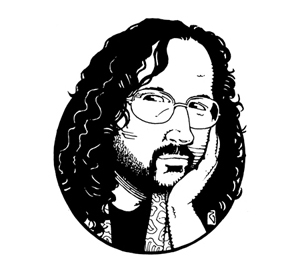THE SYNCHRONICITIES just keep revealing themselves. At San Jose Mayor Chuck Reed’s State of the City address a few weeks ago, Rabbi Leslie Alexander opened the show with an obligatory invocation, recalling an ancient Jewish tale about the creator’s encounter with Adam and Eve in the Garden of Eden. You see, God was showing them around to see the “beauty, creativity and potential of their home.” As she told it, God said: “Everything that I have created I made for humanity, so be careful with it. Do not destroy it or corrupt it, for it is up to you to maintain and develop your world.”
Of San Jose, the rabbi proclaimed, “Our city is our Eden,” adding that doing what is good and right for San Jose is not only important but holy as well. Alexander then said, “What we do today in San Jose began with Eden, as a charge to protect and to create, to see with open eyes and to dream.”
I cackled under my breath, because just one week before the State of the City address—and I’m not making this up—I was perusing a book from 1982 titled [i]Like Modern Edens: Winegrowing in Santa Clara Valley and Santa Cruz Mountains 1798–1981[/i]. Written by Charles Sullivan, the book documents what the valley was like, especially in the last half of the 19th century when vineyards dominated the landscape.
With gorgeous historical photographs and tirelessly compiled endnotes, [i]Like Modern Edens[/i] contains a wealth of anecdotes about forgotten winemakers and vineyardists—from French settlers straight down to the folks who sold jug wine from casks in their backyards. The book opens with an 1863 quote from J.Q.A. Warren that inspired its title: “The whole valley of San Jose seems one great garden. … In and around the city are beautiful gardens and vineyards, like modern Edens.”
The book rams home the fact that before the valley was characterized by its orchards, it was characterized by its vineyards. We see a photo of the Lone Hill Vineyard, which sat on land that is now the park of the same name near Harwood and Los Gatos–Almaden Road. In fact, David Harwood was the owner of the vineyard in the 1860s, when it was the largest in the county. Many of the valley’s original vineyardists also have streets or monuments named after them—pioneers like Antoine Delmas, the Pellier brothers and Henry Morris Naglee, the legendary Civil War veteran and brandy maker whose statue graces St. James Park to this day. The valley’s history is soaked in booze, to say the least.
Perhaps the most arresting aspect of the book is the attention it gives to the phylloxera epidemic that emerged in the Santa Clara Valley in the last few decades of the 19th century. Similar to an aphid, the phylloxera is a North American root louse massively destructive to vineyards and the wine industry in general. In San Jose, according to [i]Like Modern Edens[/i], the insect first appeared in 1883 on the East Side and wreaked significant havoc throughout the valley. The phylloxera epidemic is what caused many local vineyards to die and eventually be replaced by prune orchards. Maybe that’s why San Jose became the Prune Capital of the World.
For me, the synchronicities didn’t end there. Just one day before the rabbi’s invocation, I was also revisiting Timothy Leary’s blasphemous comedy routine about how the Garden of Eden was the site of the first drug bust in history. Originally told to him by Aldous Huxley during a psilocybin session in the early ’60s, the routine stated that “original sin” was the intelligent use of drugs in the Garden of Eden. The forbidden fruit from the Tree of Knowledge was the first controlled substance—that is, God established the first food and drug regulations. Adam and Eve weren’t supposed to partake, because if they did they might actually see beyond good and evil and achieve immortality. But they partook, and they got busted, which, of course, explains why the Christian church to this day is hysterically anti-drugs. It came from the Bible.
So if “What we do today in San Jose began with Eden,” then all I can say is maybe God also sent the phylloxera to San Jo, sentencing all of us to consume prune juice instead of wine. We were doomed from the start.



